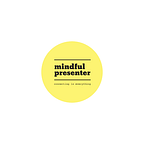4 questions your audience have for you before you utter a word
Presentation training isn’t simply about sharing knowledge, information and insights. It’s ultimately about helping you to connect with your audience. The next time you are called on to give a presentation at work or do any form of public speaking, you can be certain that sitting before you will be a very diverse group of people.
Some won’t want to be there, some will be thinking about lunch or a deadline for a piece of work. Some may be mulling over their monthly report or perhaps thinking of who you remind them of. Of course, they won’t consciously realise they are thinking those things and some may even be looking forward to hearing what you have to say. Whatever it is on their minds, as presenters we have to focus mindfully on connecting with them instantly. A high impact presentation training course will show you exactly how to do that.
You don’t have much time at all to grab your audience’s attention, put them at ease and create a cohesive gathering. It could be argued that you already have their attention, as they turned up; they want much more from you. Every presenter needs to capture their audiences interest and curiosity as well as their attention. As you do so, they not only want to connect with you, they need to connect with each other too.
The key to creating those all important connections is mindfulness.
As you prepare your presentation it is really important to know that before you utter a single word your audience will always have four searing questions.
Question 1. Who are you?
They don’t want you to remind them of your name and title; that’s probably already on your PowerPoint Slide next to your logo or on an agenda right in front of them. They also don’t want to know how many offices you have and how many widgets you make each year. The first words you speak are the most critical. They will give your audience the comfort that they are not only in the right room but make them feel good that they turned up.
What they really want to know is:
– Whether you are like them
– Whether you understand them
– Whether you really care
– Whether they can relax and trust you
The best way to show them who you are is to put their minds at ease and allow them to see that you are just like them. Tell them a short, personal story that has relevance to your topic and message but also allows you to be a little vulnerable. Give them some insight into what you value, what makes you tick and what makes you just like them. They want to connect with you as much as you want to connect with them and a great way to do that is to tell a story they can relate to.
Having the courage to be as open as you can at the beginning of your presentation is by far the most powerful way of making that connection. As you do so something truly amazing happens; they begin to connect with each other as well.
Question 2. Why are you here?
This is the next logical question and the answer to it is very likely contained in your personal story. If your story is relevant you’ll find your message in it and at the outset you get to share with passion what that message is.
What did you learn, what’s the moral of the story?
Some presenters take great pride in justifying their presence through a shopping list of qualifications. What your audience really want to know is why you have called them together and what’s so important that you couldn’t simply send them an email.
Question 3. Why are we here?
I don’t believe I have met anyone who gets excited at the prospect of attending a business presentation. Most professionals already hold the belief based on personal experience that the presentation will probably be too long, too boring and that much of the information shared will be of little relevance to them.
That means your first job as a presenter is to make absolutely certain that they know why they are there, before, during and even after your presentation. Whatever you do first, be sure to make it crystal clear so they know they are in the right place, they can relax and look forward to hearing what you have to say.
If you really expect your audience to sit quietly, attentively and respectfully for the next 20 or 30 minutes then you need to make them a promise. You need to promise to make it worth their while and offer them a specific benefit that will be of real value to them
Question 4. Do you really believe what you are telling us?
It doesn’t matter how stunningly creative your slides are, or how dimensional your pie chart is. One of the very first things your audience will be looking out for if they like you and your message is whether they believe you. They also want to know whether you believe wholeheartedly in what you are telling them.
There is no point in telling them how passionate you are about your message if you haven’t first told your own face, voice and body.
Holding these 4 questions at the forefront of your mind the moment you begin crafting your presentation will serve you and your audience extremely well.
If this article has inspired you to learn a little more about how effective your presentation skills are you may want to take a look at our presentation training and presentation coaching pages to see how we may be able to help you. You will also find a great deal of really helpful ‘free’ information in our Learning Centre.
Image: Courtesy of www.iStock.com
